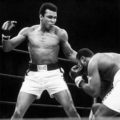
The pain and anguish of rejection by a romantic partner trigger activity in the parts of the brain associated with motivation, reward and addiction cravings, according to a study that has implications for understanding why the feelings related to rejection are hard to control and can lead to stalking, homicide and suicide.
Using functional magnetic resonance imaging (fMRI), researchers recorded the brain activity of 15 college-age adults who had recently been rejected by their partners but reported still being intensely “in love.” The findings were published in the Journal of Neurophysiology .
The researchers found that looking at photographs of the participants’ former partners stimulated several key areas of the participants’ brains more than looking at photos of neutral persons did. The areas are:
- The ventral tegmental area in the mid-brain, which controls motivation and reward and is known to be involved in feelings of romantic love.
- The nucleus accumbens and orbitofrontal/prefrontal cortex, which are associated with craving and addiction, specifically the dopaminergic reward system evident in cocaine addiction.
- The insular cortex and the anterior cingulate, which are associated with physical pain and distress.
There is hope for the lovelorn, however: The researchers found that the greater the number of days since the rejection, the less activity there was in the area of the brain associated with attachment, the right ventral putamen/pallidum area.
Interestingly, areas associated with reappraising difficult emotional situations and assessing one’s gains and losses were activated, suggesting that rejected individuals are trying to understand and learn from their difficult situation – what could be an adaptive response to rejection. If attachment responses decrease as the days go by and falling out of love is a learning process, there could very well be physiological evidence that time heals all wounds.
Related:
The evolutionary benefits of crying
Game theory shows why you can’t hurry love
Study suggests the war on drugs might really be a war on sex
Sex appeal as important as education?








Comments are closed.